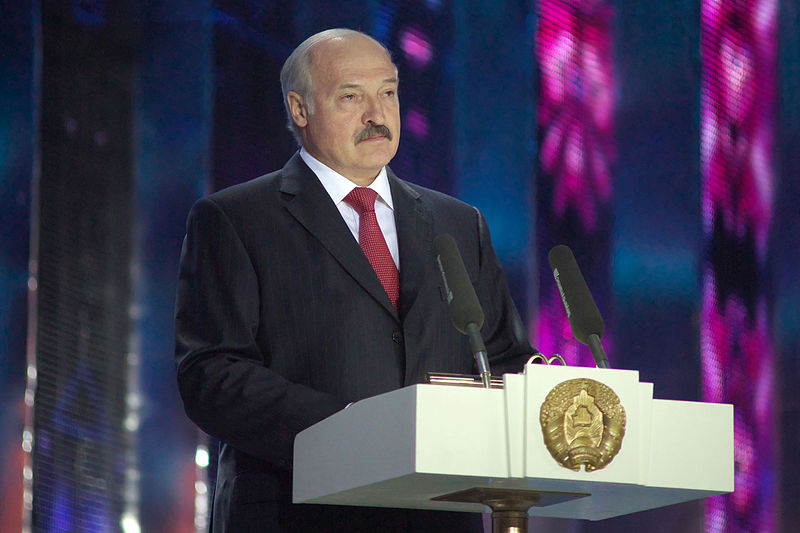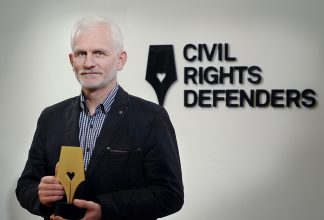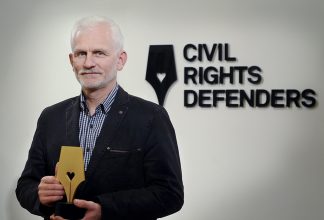2020 Presidential Election Campaign in Belarus: Same but Different?

As Belarus is well into the campaign ahead of the presidential election on 9 August, we witness both old practices and some surprising changes compared to previous presidential elections. The country has been governed by President Lukashenka since 1994. Since then, no elections have been considered free and fair by the international community.
As the Belarusian authorities are still to implement long-standing recommendations by international monitoring organisations such as OSCE/ODIHR, the upcoming election is doomed to suffer from the same fundamental flaws as previous ones. Civil and political rights are restricted and an overall environment of hostility towards dissident opinions remains. On top of that, the election campaign is taking place as usual despite the COVID-19 pandemic, which has already strongly affected the Belarusian society and might continue having an important role until election day.
Protests against President Lukashenka
The last few weeks have seen extensive public activities. Protests against Lukashenka’s decision to run for President again and pickets in support of some of the other candidates have been held. As highlighted by the campaign “Human Rights Defenders for Free Elections”, “the deterioration of the socio-economic situation in the country and the authorities’ controversial policies in response to the pandemic became a catalyst for public discontent and led to a certain increase in election-related protests”. Since its early stages, President Lukashenka has dismissed the pandemic as irrational paranoia and refused to take strong measures to protect the country’s population.
Criminal prosecutions against opposition candidates
During the seven days available for submitting applications to register groups to nominate future presidential candidates, the Central Election Committee (CEC) received as many as 55 candidatures. This was an all-time record in the history of Belarus and happened against the backdrop of an intensification of actions by the authorities against independent candidates. The first example was the arrest on 6 May of well-known blogger Siarhei Tsikhanouski which deprived him of the opportunity to apply for registration. Instead, the blogger’s wife – Sviatlana Tsikhanouskaya – could successfully submit her application.
In total, 15 nomination groups were registered, and candidates had time until 19 June in order to collect the 100 000 signatures that are required to support their nominations. As in previous occasions, the CEC turned down 40 applications, mostly by opposition activists.
Since then, the nominations groups have been active in gathering signatures across the country. The mobilisation has been surprisingly high especially around the candidature of Sviatlana Tsikhanouskaya. On 29 May, at a picket in the city of Hrodna, however, Siarhei Tsikhanouski was again arrested by the police together with at least 15 other people. As highlighted by representatives of several Belarusian human rights organisations, the pattern of criminal prosecution against Siarhei Tsikhanouski shows that there are clear political motivations behind it. On 8 June, Tsikhanouski was officially charged together with six other activists with “organizing group actions that grossly violated public order and disrespected the lawful demands of the authorities, and with active participation in such actions”, which could lead to three years of imprisonment. He could also face new charges of “interfering with elections” following a complaint by the head of the CEC. Leading Belarusian organisations have called for their release and for the authorities to drop all charges against them, as well as to start an independent investigation into the action of police officers and picketers who violated the law.
Fearing a further increase of repression, on 11 June Sviatlana Tsikhanouskaya decided to temporarily suspend the collection of signatures for her nomination. A few days later she announced that she was considering withdrawing her candidature following a threatening telephone call. Finally, on 17 June she confirmed she would continue the campaign and was ready to hand in the collected signatures. In the meantime, the authorities also increased pressure against another prominent candidate, Viktar Babaryka. First they ordered a search of the head office of Belgazprombank, a Russia-owned bank that he used to be the CEO of, and then they arrested a member of his initiative team.
President Lukashenka’s reaction to the current events has been dismissive and at times even threatening. As an example, he recently referred to the shooting of protesters in Andijan, Uzbekistan in 2005. He also suggested that some militant groups might be preparing to stage riots during the elections and promised there would be no ‘coups or Maidans’ in Belarus, referring to the events in Ukraine in 2013-2014.
Activists and journalists arbitrarily arrested
Political opponents are certainly not the only victims of the ongoing repression in Belarus. Viasna Human Rights Center reported that between 6 May and 10 June, at least 192 persons were convicted for their involvement in peaceful protests. Among them, 90 were sentenced to various terms of administrative detention and 102 protesters were fined. During the month of May, the Belarusian authorities arbitrarily arrested and sentenced more than 120 people to fines and terms of detention. As reported by Viasna ,”among those arrested on May 8 was Viasna journalist and activist Aliaksandr Burakou; he was detained for 72 hours before trial, and it was not until May 11 that a court in Mahilioŭ sentenced him to 10 days in prison.”
As documented by the Belarusian Association of Journalists (BAJ), on 10 June, “journalist Zmitser Mitskevich and cameraman Syarhei Kavaliou who were livestreaming a picket in support of incumbent president Alyaksandr Lukashenka were detained in the Belarusian city of Hrodna”. Plain clothed policemen forcibly put the two Belsat TV contributors in a van and seized their equipment. They were released after a few hours, but an administrative case was started against them under a legal article that regulates production and distribution of media products.
Reactions from the international community
The international community has reacted to the increased repression of recent weeks. The EU, US and UK urged “the Belarusian authorities to take the measures necessary to hold a safe, peaceful, free and fair election and to ensure fundamental freedoms”. Leading members of the European Parliament even raised the possibility for the EU to set up new sanctions against those officials responsible for the crackdown, which shows the gravity of the situation and the concern of some key international actors.
“We are concerned that the charges could be used as a tool to silence the critical voices of opposition candidates, human rights defenders, journalists, bloggers and other members of civil society, including medical workers. Restrictions to the right to freedom of expression are particularly serious when done in the lead-up to elections”, said the UN Special Rapporteur on the situation of human rights in Belarus, Ms Anaïs Marin, in a joint statement with a group of UN experts.
“The increase in repression in connection with the election campaign is common practice in Belarus. However, compared to previous elections there is a stronger mobilisation by people who want a real competition for power to take place. Many feel dissatisfied by President Lukashenka’s general handling of the country and, more recently, of the COVID-19 pandemic. Hence, the crackdown carried out by the authorities has also been tougher and we are heading to a level of repression similar to the one of the 2010 presidential elections that led to imposing a new set of sanctions against Belarus. The appearance of new political prisoners in the country is an extremely worrying sign and the international community should use all possible tools to pressure the Belarusian authorities in order to immediately revert such practice”, said Ana Furtuna, Director for the Eurasia Department at Civil Rights Defenders.


